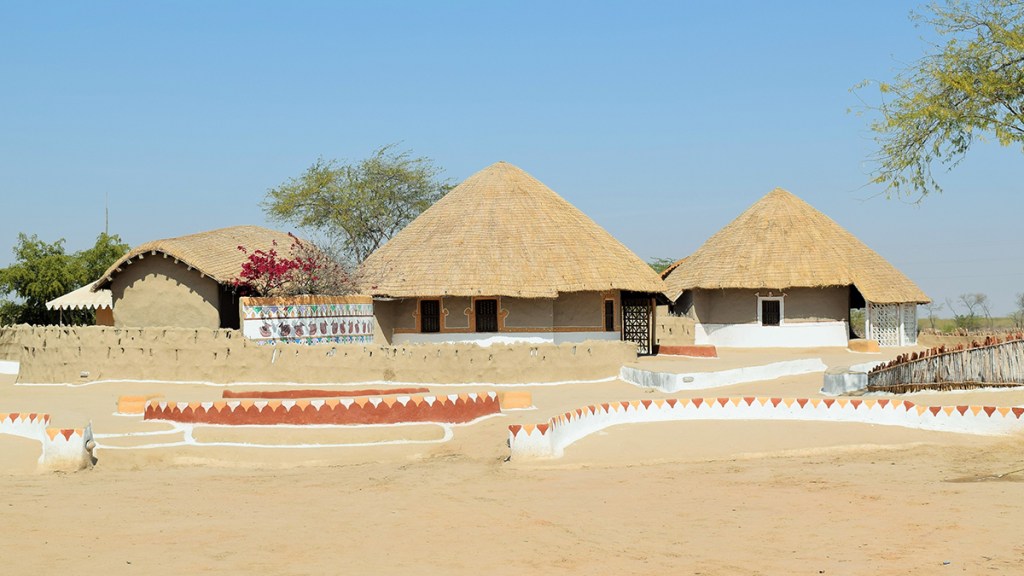The Ministry of Tourism, Government of India, in partnership with the United Environment Program (UNEP) and Responsible Tourism Society of India (RTSOI) organized the National Summit on Developing Sustainable & Responsible Tourist Destinations in New Delhi in 2022. The event also served as a platform for the Ministry of Tourism to kick off its National Strategy for Sustainable Tourism and Responsible Traveller Campaign.
The Ministry of Tourism (GOI) launched the National Strategy for Sustainable Tourism in April 2022 with an aim to mainstream sustainability in the tourism sector and to ensure a more resilient, inclusive, carbon-neutral and resource-efficient tourism while safeguarding natural and cultural resources. The National Strategy aspires to position India as a preferred global destination for sustainable and responsible tourism. National Strategy for Sustainable Tourism also relies on responsible behaviour of the tourists and has great synergy and convergence with Mission LiFE. Launched by Hon’ble Prime Minister of India, Shri Narendra Modi in October 2022, LiFE stands for ‘Lifestyle for Environment’.
LiFE recognises that Indian culture and living traditions are inherently sustainable. The importance of conserving our precious natural resources and living in harmony with nature are emphasised in our ancient scriptures. The need of the hour is to tap into that ancient wisdom and spread the message to as many people as possible. Mission LiFE seeks to channel the efforts of individuals and communities into a global mass movement of positive behavioural change.
At the launch, the Prime Minister remarked, “The mantra of Mission Life is ‘Lifestyle For Environment’. Emphasising the benefits of Mission LiFE, the Prime Minister said that it connects the powers of the people for the protection of this earth, and teaches them to utilise it in a better way. He underlined that Mission LiFE makes the fight against climate change democratic, in which everyone can contribute within their capacity. “Mission LiFE inspires us to do all that can be done in our everyday life to protect the environment. Mission LiFE believes that the environment can be protected by making changes in our lifestyle,” the Prime Minister said. He gave the example of the adoption of LED bulbs in India for reducing electricity bills and protecting the environment. “This led to massive savings and environmental benefits and this is a recurring permanent benefit,” the Prime Minister added.
The Prime Minister elaborated that Mission LiFE emboldens the spirit of the P3 model i.e. Pro Planet People. Mission Life, unites the people of the earth as pro planet people, uniting them all in their thoughts. It functions on the basic principles of ‘Lifestyle of the planet, for the planet and by the planet’. The Prime Minister remarked that the way to the future can only be paved by learning from the mistakes of the past. He recalled that India has had a tradition of worshipping nature for thousands of years. The Vedas precisely mention the importance of elements of nature like water, earth, land, fire and water. The Prime Minister quoted the Atharvaveda and recited, “‘Mata Bhumiah Putroham Prithivyah’ that is, the earth is our mother and we are her children.”
The Prime Minister threw light on the concept of ‘Reduce, Reuse and Recycle’ and circular economy and mentioned that it has been a part of the lifestyle of Indians for thousands of years. Speaking of other parts of the world, the Prime Minister said that such practices are prevalent, which inspire us to walk in harmony with nature. “Mission LiFE will encompass every lifestyle related to the conservation of nature, which our ancestors adopted, and that can be made a part of our lifestyle today”, he said.
Meanwhile, the National Strategy for Sustainable Tourism has identified the following strategic pillars for developing sustainable tourism: (i) Promoting Environmental Sustainability; (ii) Protecting Biodiversity; (iii) Promoting Economic Sustainability; (iv) Promoting Socio-Cultural Sustainability; (v) Scheme for Certification of Sustainable Tourism; (vi). IEC and Capacity Building; and (vii) Governance Key Stakeholders. These sustainable and responsible tourism practices will be implemented in various projects and initiatives through Swadesh Darshan 2.0.
The Scheme will encourage the adoption of principles of sustainable tourism, including environmental sustainability, sociocultural sustainability and economic sustainability.
Some initiatives will include: (i) The States will ensure due consultation with local communities and stakeholders while preparing the projects to develop the destinations. (ii) The States will encourage the use of renewable energy, eco-friendly material, e-vehicles etc., in the projects (iii) The States will ensure the development of accessible infrastructure and services at the selected destinations under the Scheme. (iv) There will be an adequate focus on capacity building among local communities, particularly youth and women, to enable them to take up jobs and opportunities in the tourism sector. (v) The States will encourage local entrepreneurship and self-employment opportunities in the tourism value chain. (vi) The States will also launch a sustainability campaign to encourage tourism enterprises to adopt sustainable and responsible practices. (vii) The States will also sensitize tourists to respect the environment and behave responsibly.
Formed in 2008, the Responsible Tourism Society of India is a national-level body for ecotourism; it was tasked to engage in advocacy; help create policies and guidelines and help with certification. It works closely with the central and state government bodies responsible for sustainable tourism and a network of like-minded regional/state players across the country to facilitate and support synergy of policies, initiatives and activities at the national and state level.
Travel for LiFE has been formulated as a sectoral Program for tourism sector under Mission LiFE that aims to promote sustainable tourism in the country in convergence with the National Strategy for Sustainable Tourism. The “Travel for LiFE” Program aims to mobilize tourists and tourism businesses of the country to be mindful and deliberate in their actions as important stakeholders of the tourism value chain.

For more details about Green Tourism India Conclave, Click here.

